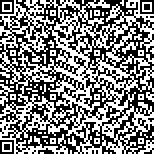|
|
|
| |
|
|
| 本文已被:浏览 2807次 下载 663次 |

码上扫一扫! |
|
|
| 半滑舌鳎(Cynoglossus semilaevis)血浆性类固醇激素表达与卵巢发育及温光调控的关系研究 |
|
徐永江1,2, 柳学周1,2, 王清印1,2, 马爱军1,2, 赵 明1,2, 倪 娜1,2, 曲建忠3
|
|
1.农业部海洋渔业资源可持续利用重点开放实验室 中国水产科学研究院黄海水产研究所;2.中国水产科学研究院黄海水产研究所 青岛市海水鱼类种子工程与生物技术重点实验室;3.青岛忠海水产有限公司
|
|
| 摘要: |
| 采用放射免疫法(RIA)、 组织切片技术和形态测量法首次系统研究了人工养殖条件下半滑舌鳎亲鱼卵巢的年周期发育过程中血浆中性类固醇激素[雌二醇(E2)和睾酮(T)]的表达规律与性腺发育[组织结构、性腺指数(GSI)、肥满度(CF)和肝脏指数(HSI)]及温度和光周期调控的关系。结果表明, 半滑舌鳎属于非同步分批产卵类型, 卵巢发育依据卵母细胞形态和组成划分为五期。GSI、CF 和 HSI随性腺的年周期发育而呈现规律性变化。水温调节与 GSI 和 HSI 值变化呈显著正相关关系。性腺的年周期发育过程中, 血浆中 E2 在 8 月(Ⅳ期)达到峰值, 进入产卵期后(9 月)开始下降。T 含量在 9 月达到最大值, 在 10 月开始下降。在年周期各月份, 雌鱼体内 E2 表达水平都远高于 T 表达水平, E2 与T 呈显著正相关关系。水温调节对 E2 和 T 表达水平影响显著且与其呈正相关关系, 光周期调节对 T和 E2 表达水平影响不显著。 E2 表达水平与 HSI 变化呈显著正相关关系, 与 CF 变化呈负相关关系, T表达水平与 HSI 变化呈正相关关系, 表明性类固醇激素表达水平可用于准确判断鱼类的生殖状态。本研究结果可为温光调控人工亲鱼性腺发育成熟、激素诱导亲鱼产卵提供重要技术依据。
|
| 关键词: 半滑舌鳎, 性类固醇激素, 卵巢发育, 温光调控 |
| DOI:10.11693/hyhz201101010010 |
| 分类号: |
| 基金项目:国家 863 计划项目资助, 2002AA603011 号, 2006AA10A414 号。农业部公益性行业专项项目, nyhyzx07-046 号; 鲆鲽类现代产业技术体系, nycytx-50 号; 青岛市成果转化项目, 09-2-3-15-chg 号; 中央级公益性科研院所基本科研业务费专项资金项目, 2008—2010。 |
|
| RELATIONSHIPS BETWEEN SERUM SEX STERIODS LEVELS AND GONADAL DEVELOPMENT AND PHOTOTHERMAL REGULATION DURING THE ANNUAL MATURATION OF CAPTIVE CYNOGLOSSUS SEMILAEVIS GüNTHER |
|
XU Yong-Jiang1,2, LIU Xue-Zhou1,2, WANG Qing-Yin1,2, MA Ai-Jun1,2, ZHAO Ming1,2, NI Na1,2, QU Jian-Zhong3
|
|
1.Key Laboratory for Sustainable Utilization of Marine Fisheries Resource, Ministry of Agriculture, Yellow Sea Fisheries Research Institute, Chinese Academy of Fisheries Sciences;2.Yellow Sea Fisheries Research Institute, Chinese Academy of Fishery Sciences,;3.Qingdao Zhonghai Fishery Co. Ltd.
|
| Abstract: |
| The annual serum sex steroids (17β-estrodial, testosterone) expression and gonadal development parameters [gonadosomatic index (GSI), hepatosomatic index (HSI) and condition factor (CF)] of Cynoglossus semilaevis Günther were studied during annual maturation cycle. In addition, the relationships between GSI, CF, HSI, sex steroids and temperature and photoperiod were investigated using statistical analysis. C. semilaevis features asynchronous gonadal development and batch spawnings. The gonad development is divided into 5 stages according to oocytes development, during which GSI value, HSI value and CF value changed synergistically. The serum estradiol level increased in June (stage Ⅲ) and peaked in August (stage Ⅳ, P<0.05), just before spawning. After the spawning, it dropped to a relative low level, and back to the lowest level after November until May. The T level ascended in July and peaked in September (P<0.05), a month later than that of estrodiol. During the year round development, the serum estrodiol level was always higher than testosterone; and a positive relationship was found between them (r = 0.733, P<0.05). The E2/T ratio increased in November, and peaked in next January, then decreased to low level until October. Temperature imposed significant effect on E2 and T levels and the positive relationship between them; while photoperiod showed no significant effect (r<0.3, P>0.05). These results highlight the temperature may be the primary environmental cue to activate BPG axis. In addition, E2 levels were positively correlated with the HSI values, but negatively with the CF values. Moreover, the T level was significantly correlated with the HSI values. In conclusion, based on the relationship between sex steroids and gonadal development, the sex steroids level could serve as a useful tool to determine the timing for hormone induced-spawning in farmed female C. semilaevis.
|
| Key words: Cynoglossus semilaevis Günther, Sex steroids, Gonadal development, Photothermal regulation |
|
|
|
|
|
|
